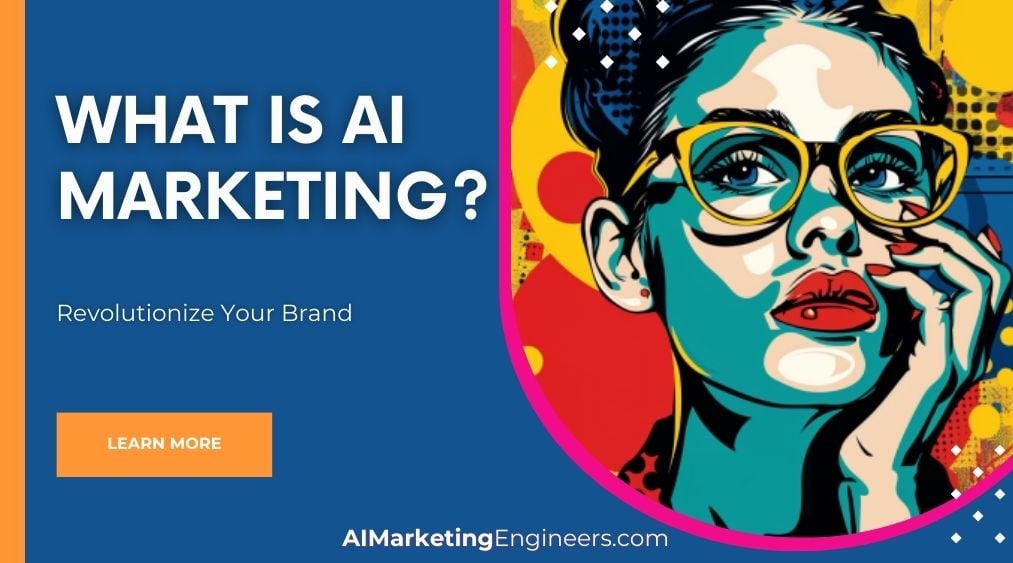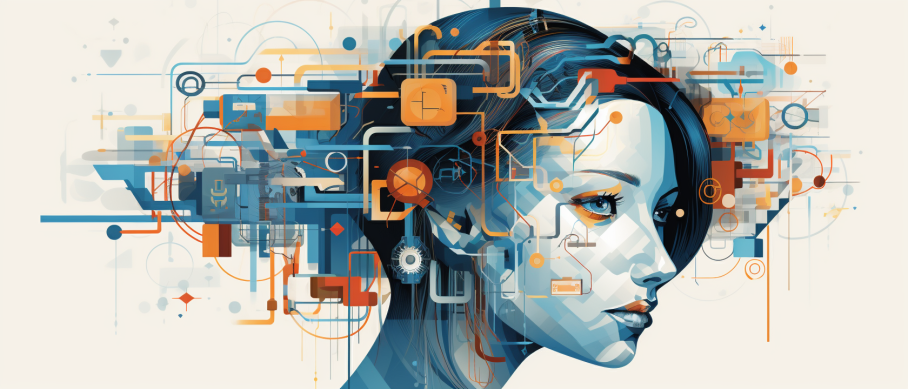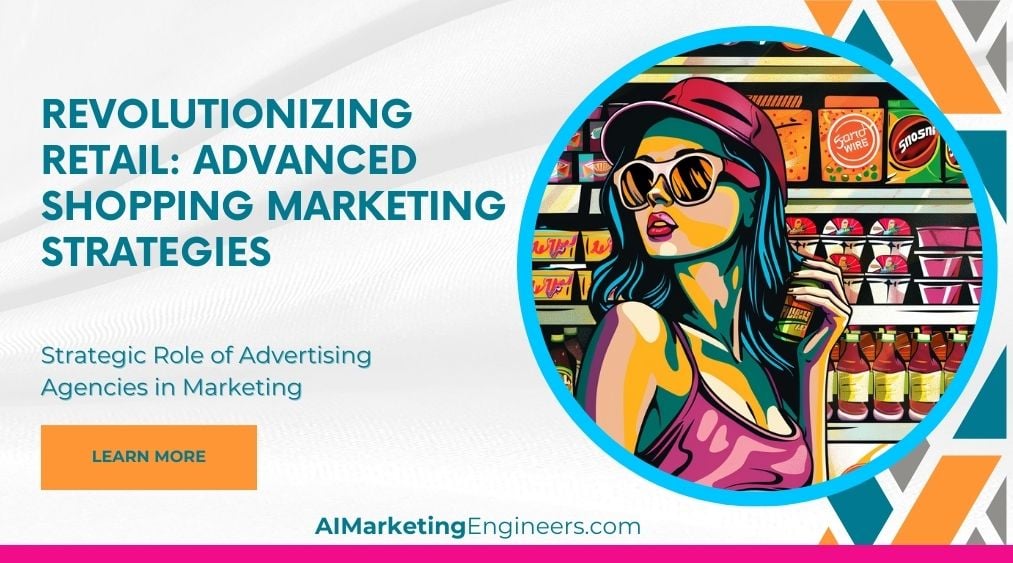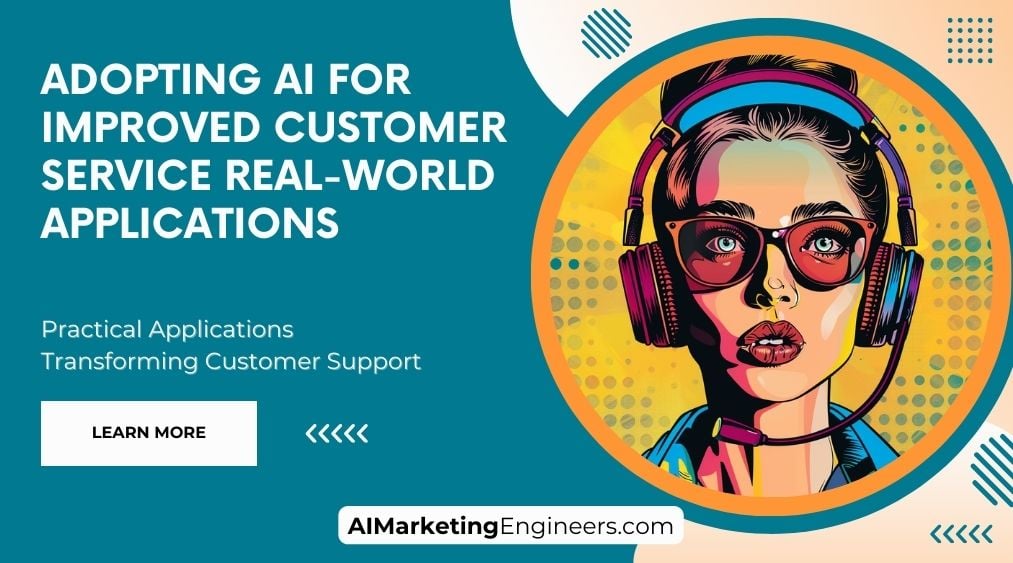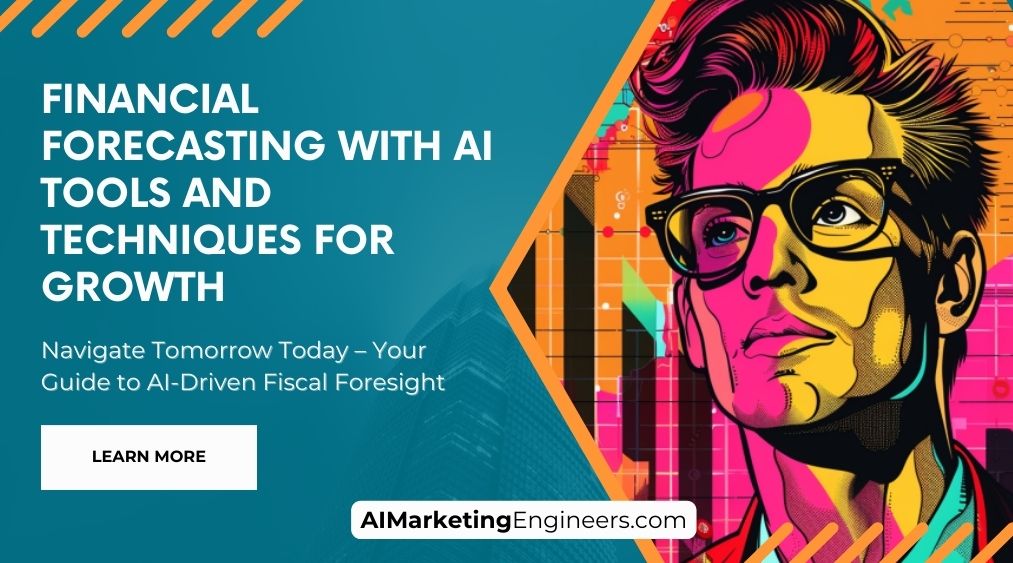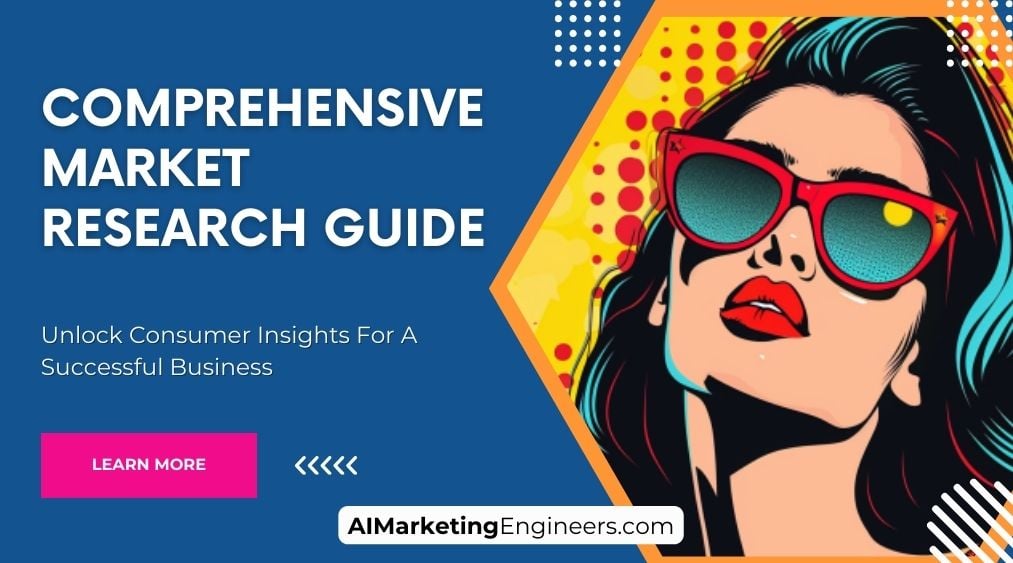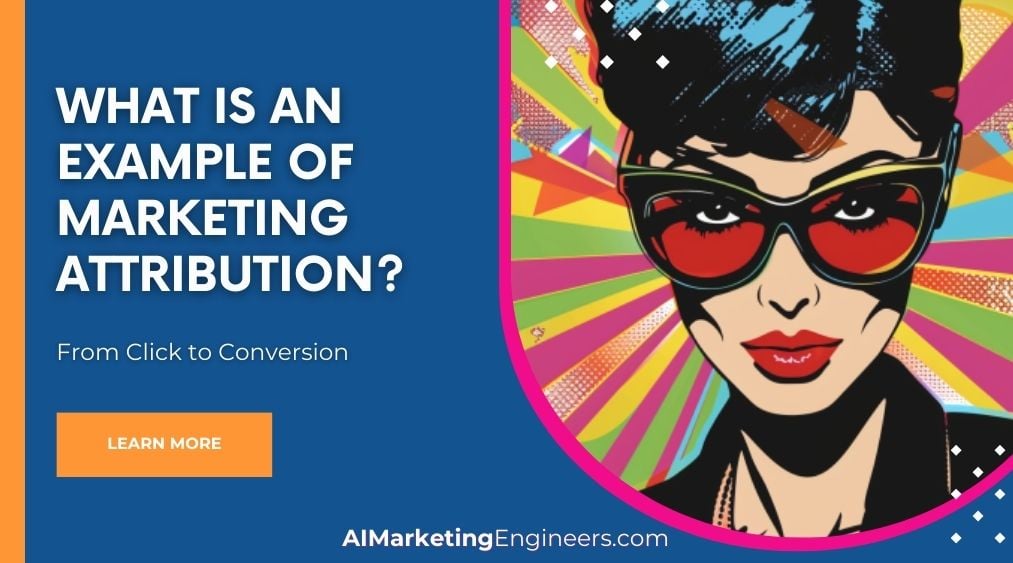Key Takeaways
✅ Personalization at Scale: With AI in the driver's seat, businesses can now achieve unparalleled levels of user personalization. Statistics show a 20% uptick in sales for companies that utilize personalized experiences effectively.
✅ Predictive Analytics and Forecasting: Harness the foresight of AI and witness a marked improvement in decision-making efficacy. Organizations relying on predictive analytics can expect a 10-15% boost in their ROI.
✅ Automation and Efficiency: AI-empowered automation isn't just about cutting costs—it's about enriching the customer journey. Reports highlight a 14% rise in customer satisfaction scores when AI streamlines interactions.
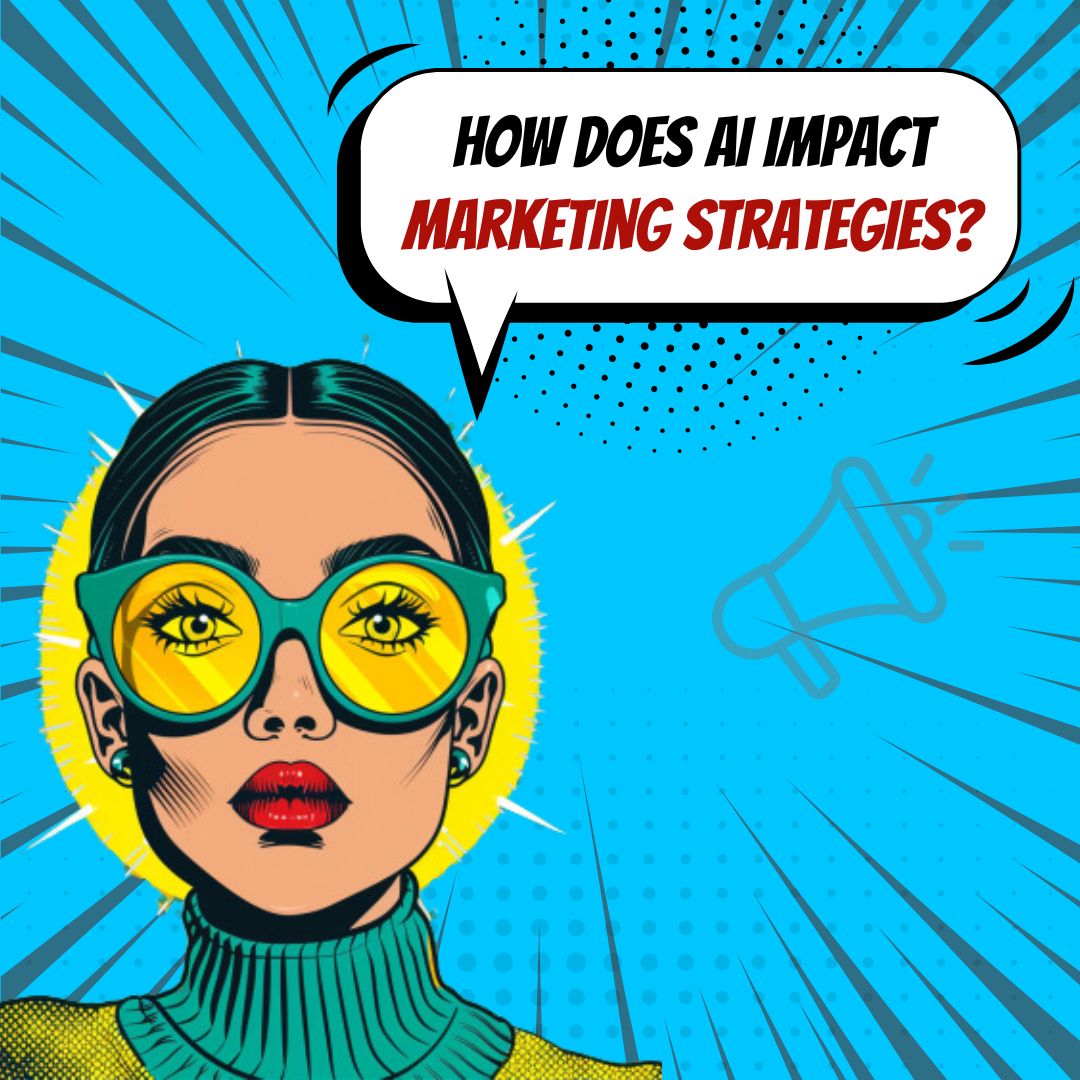
Introduction
Ever wondered why the future of marketing seems synonymous with AI? Artificial Intelligence (AI) is more than a futuristic buzzword—it's a transformative force reshaping the way brands interact with consumers. What is AI marketing, you ask? It's the secret weapon businesses are deploying to leave indelible imprints on their market spaces—an alchemy of data, algorithms, and machine learning that predicts, personalizes, and automates like never before.
In the following article, prepare to have the veil lifted on cutting-edge applications like content optimization and predictive targeting, which are not just enhancing customer experiences but also rocketing revenue and ROAS to stellar heights. Your anticipation should be mounting because what lies ahead is a trove of actionable insights and groundbreaking knowledge poised to catapult your marketing efforts into a new echelon of success. Stay with us, as we dive deep into the world of AI marketing—where inspiration meets innovation for exponential business growth.
Top Statistics
| Statistic | Insight |
|---|---|
| Global AI Market Size: Projected to grow from $38.8 billion in 2020 to $309.6 billion in 2026, at a CAGR of 39.7% (Source: Markets and Markets, 2021) | The AI market is experiencing explosive growth, indicative of its transformative role in e-commerce and beyond. Engage now or risk falling behind. |
| AI Marketing Adoption: 84% of marketing organizations are implementing or expanding AI use for marketing activities (Source: Salesforce, "State of Marketing" report, 2021) | A staggering adoption rate highlighting AI's critical impact on modern marketing strategies. It's becoming the backbone of competitive edge. |
| Increased ROI: 35% of marketers using AI report an increase in ROI of 10% or more (Source: Forrester, "The Forrester Wave™: Customer Analytics Technologies, Q2 2020") | Leveraging AI isn't just innovation talk; it's financial sense. Implement AI to drive revenue growth and sharpen your ROI edge. |
| Personalization: 63% of marketers say personalization is the most promising use of AI in marketing (Source: Evergage, "2020 Trends in Personalization" report, 2020) | Customer-centric personalization is where AI shines, customizing experiences at scale to foster loyalty and engagement. |
| AI-powered Chatbots: Global chatbot market expected to reach $17.17 billion by 2026, growing at a CAGR of 23.5% (Source: Grand View Research, 2021) | Chatbots are revolutionizing customer service, offering 24/7 support and learning from each interaction to become more effective. |
Defining AI Marketing
Artificial Intelligence has woven itself into the very fabric of daily life, revolutionizing industries with its capacity to learn, analyze, and predict. AI marketing harnesses this power to deliver cutting-edge strategies, cultivating smarter campaigns that resonate with consumers. It's a momentous shift, granting businesses the unparalleled capability to personalize experiences, streamline operations, and craft content with precision—all in real-time. Brands that harness AI's potency are stepping into the future of marketing, a future equipped with insights once thought unattainable.
Benefits of AI Marketing
The advent of AI marketing ushers in a new era of customer experiences, with personalization at its heart—embracing individual preferences, behaviors, and interactions to tailor the buyer's journey. But it's not just the customization that's turning heads; AI's robust data analysis capabilities are performing wonders in deciphering vast datasets at unprecedented speeds. This, in turn, drives efficiency and cost-effectiveness, addressing the marketplace's demands for leaner, more agile marketing operations that maximize ROI.
Applications of AI Marketing
In AI marketing, content creation becomes almost prophetic, intelligently optimized to engage audiences. Meanwhile, predictive analytics for targeted advertising sharpens the focus of campaigns, reaching key demographics with almost uncanny accuracy. With chatbots providing round-the-clock customer support and sentiment analysis fine-tuning social media campaigns, AI is indeed the tireless ally in the quest for omnipresent customer engagement.

Challenges of AI Marketing
Despite AI marketing's transformative potential, it's not without its hurdles. Data privacy emerges as a significant public concern, mandating businesses to navigate a complex web of regulations. Seamless integration with legacy systems remains a test of both agility and technical prowess. Furthermore, touching upon societal implications, automating marketing processes could drive a need for workforce evolution, spotlighting the urgency of job training and re-skilling.
Successful Examples of AI Marketing
Pioneering brands have rendered case studies that are nothing short of AI marketing playbooks. Companies leveraging this tech witness remarkable upticks in engagement rates, conversion, and customer retention. Their success stories illuminate the path for countless others, showing that when AI marketing is implemented with finesse, it doesn't merely meet industry benchmarks—it redefines them.
Future Trends in AI Marketing
Visualize the upcoming landscape as AI burgeons further with innovation threads like natural language processing (NLP), machine learning, and deep learning. Their potential is vast, anticipated to recalibrate consumer behavior and market dynamics profoundly. Forward-thinking businesses should actively monitor these developments, continuously integrating emerging AI solutions to stay ahead in a rapidly-evolving e-commerce ecosystem.
Embracing AI Marketing for Business Growth
Integrating AI marketing is a journey bridging today's resourcefulness with tomorrow's vision. It's a vibrant synergy of human creativity bolstered by machine intelligence. For businesses aiming to ascend in the digital era, adopting AI marketing isn't just advisable—it's imperative. As your brand endeavors to grow, consider AI not just as a tool but as a collaborator, one that empowers your business to reach zeniths of personalized, efficient, and effective marketing.
Inspirational Quotes
1. "AI marketing will change the game for marketers by allowing them to make better decisions faster and create more personalized experiences at scale." – Raja Rajamannar, Chief Marketing & Communications Officer, Mastercard
This quote underscores the transformative capabilities of AI marketing in revolutionizing the marketer's toolkit. By leveraging AI, marketing professionals can now tap into deep insights and adapt in real-time, ensuring that every consumer interaction is optimally personalized and engaging.
2. "The real power of AI isn’t just automation; it’s augmentation—empowering humans to achieve more than would be possible otherwise." – Sundar Pichai, CEO, Google
Here, Sundar Pichai captivates our imagination by painting AI as a force multiplier for human potential. This augmentation means that creative marketing strategies infused with AI can unlock unprecedented levels of productivity and innovation in the e-commerce space.
3. "As AI becomes increasingly sophisticated, we will see new opportunities for marketers to connect with customers in more meaningful ways, leading to deeper relationships and better outcomes." – Marc Benioff, Chairman and CEO, Salesforce
Marc Benioff's insight is a beacon for future-focused marketers. As AI technology matures, it promises to open doors to novel marketing avenues that can forge more profound and rewarding connections with audiences — a significant stride towards customer-centricity and business success.

AI Marketing Engineers Recommendation
Recommendation 1: Personalize Customer Journeys with Predictive Analytics: Use AI marketing to analyze large sets of consumer data and predict future behaviors with high accuracy. For instance, tools equipped with machine learning can help you personalize marketing messages, product recommendations, and promotions in real-time, leading to a reported uplift in customer engagement by up to 20% according to a recent McKinsey study. Leverage AI's predictive power to tailor the shopping experience to each visitor, significantly increasing the likelihood of conversion.
Recommendation 2: Implement AI-Powered Chatbots for Enhanced User Interaction: Embrace the AI trend that's revolutionizing customer service by integrating an AI chatbot on your e-commerce platform. AI chatbots can engage with customers 24/7, handle a multitude of inquiries simultaneously, and improve response times by up to 80%, as per IBM. They learn from interactions to improve their service over time, leading to a better customer experience, higher satisfaction, and increased retention rates. It's not just about reducing workload; it's about proactively enhancing each customer's journey.
Recommendation 3: Optimize Pricing Strategy with AI-Driven Dynamic Pricing: Harness the sophistication of AI to adjust your pricing in real-time based on market demand, competition, customer behavior, and inventory levels. AI marketing can help e-commerce businesses identify the optimal price points that maximize sales and profits. Platforms like Competera or Pricefx use machine learning algorithms to assist in making quick, data-informed pricing decisions that can drive revenue growth up to 5% as suggested by a BCG analysis. This flexible pricing approach enables businesses to stay competitive and profitable in the dynamic e-commerce landscape.

Conclusion
As we've navigated through the compelling narrative of AI marketing, it's become clear that we are on the cusp of a transformative era where technology meets ingenuity. AI marketing isn’t just a futuristic concept—it’s here, and it’s redefining the landscape of how businesses connect with customers. The amalgamation of improved customer experiences through personalization, breakthroughs in data analysis, and unprecedented efficiency underscores the importance of integrating artificial intelligence into marketing strategies.
The sweeping applications—from content optimization to predictive analytics and chatbots—are not mere enhancements but game changers that propel brands to new frontiers in consumer engagement. However, truly harnessing AI requires navigating challenges with sophistication, ensuring data privacy, system compatibility, and adapting the workforce to new paradigms.
Inspirational success stories furnish concrete evidence of the prowess of AI marketing. Brands that have pioneered in this domain offer a beacon for others, highlighting paths paved in best practices and remarkable results. Yet, we must extend our gaze to the horizon, where emerging technologies loom, promising an ever-evolving marketplace replete with both opportunities and imperatives for continuous innovation.
Embrace these insights and carve out your niche in this AI-augmented marketing saga. Let the principles of AI marketing be the north star to guide your brand's voyage through this digital age. It's an auspicious time to reconsider your toolkit, explore new resources, and perhaps most critically, to boldly venture where your brand has not ventured before. AI marketing doesn’t just offer a competitive edge—it wields the power to redefine your connection with consumers and spearhead growth in ways once beyond imagination.
FAQs
Question 1: What exactly is AI Marketing?
Answer: AI (Artificial Intelligence) Marketing refers to the use of machine learning algorithms and data analysis techniques to improve marketing strategies, automate processes, personalize customer experiences, and optimize campaign performance. It involves leveraging AI technologies to gain insights from vast amounts of consumer data and make more informed decisions in real-time.
Question 2: How does AI impact traditional marketing practices?
Answer: AI transforms traditional marketing by enabling marketers to analyze large datasets quickly, identify patterns and trends, predict consumer behavior, and create highly targeted, personalized campaigns. This results in improved engagement rates, increased conversion rates, and better return on investment (ROI).
Question 3: Can you provide examples of how AI can be used in marketing?
Answer: Some common applications of AI in marketing include:
- Personalization: Tailoring content, offers, and recommendations to individual customers based on their preferences and behaviors.
- Predictive analytics: Using historical data to forecast future trends and events, such as churn rate, demand, and sales.
- Chatbots: Implementing conversational agents to assist customers, answer questions, and provide support.
- Content creation: Generating content, such as product descriptions, social media posts, and email subject lines.
Question 4: What are the benefits of using AI in marketing for business owners?
Answer: AI marketing can benefit business owners by:
- Increasing efficiency and productivity by automating repetitive tasks.
- Improving customer experience by offering personalized interactions and recommendations.
- Enhancing decision-making by providing data-driven insights.
- Boosting ROI by optimizing campaigns and reducing costs.
Question 5: How can professionals stay up-to-date with AI marketing trends and advancements?
Answer: Professionals can stay informed about AI marketing trends and advancements by:
- Reading industry publications and blogs.
- Attending conferences and webinars.
- Joining online communities and forums.
- Following thought leaders and influencers on social media.
- Participating in training programs and certifications.
Question 6: What are the challenges and risks associated with AI marketing?
Answer: Some challenges and risks associated with AI marketing include:
- Data privacy and security concerns.
- Potential for algorithmic bias and discrimination.
- Difficulty in interpreting and explaining AI-generated insights.
- Investment in new technologies and talent.
- Resistance to change and adoption of new processes.
Question 7: How can businesses implement AI marketing strategies effectively?
Answer: To implement AI marketing strategies effectively, businesses should:
- Define clear goals and objectives.
- Invest in data collection and analysis tools.
- Hire or train personnel with AI and data science expertise.
- Collaborate with other departments, such as IT and product development.
- Test and iterate on campaigns, continuously optimizing performance.
- Monitor and address any potential risks and challenges.

Academic References
- Bhatotia, K. (2019). Artificial Intelligence (AI) Marketing: The Next Frontier. Journal of Digital & Social Media Marketing, 7(1). This article discusses how AI can enhance customer experiences, improve marketing strategies, and optimize advertising campaigns, emphasizing the importance of data-driven decision-making and the potential for personalization in AI marketing.
- Bhatotia, K., & Sharma, P. (2019). The Role of Artificial Intelligence in Marketing: Current Applications and Future Possibilities. International Journal of Engineering and Advanced Technology, 8(5S1). This paper explores the current applications of AI in marketing, including chatbots, personalization, and predictive analytics, and discusses future possibilities such as sentiment analysis and dynamic pricing.
- Al-Dweik, A., & Khan, R. (2019). Artificial Intelligence in Marketing: Opportunities, Challenges, and Recommendations. International Journal of Business and Management. The study examines the opportunities and challenges associated with AI marketing, highlighting the importance of data quality, ethical considerations, and the need for a strategic approach to AI adoption.
- Al-Dweik, A., Khan, R., & Abu-Shanab, A. (2020). The Impact of Artificial Intelligence on Marketing: A Review and Research Agenda. Journal of Marketing Analytics. This article provides a comprehensive review of AI marketing research, identifies key areas for future research, and emphasizes the importance of understanding consumer behavior with a human-centered approach to AI.
- Singh, N., & Behl, A. (2019). How Artificial Intelligence Is Changing Marketing: What Marketers Need to Know. Journal of Marketing Analytics. The paper discusses the impact of AI on various aspects of marketing, including customer engagement and data analysis, and underscores the necessity for marketers to understand and embrace AI technologies.
- Al-Dweik, A., Khan, R., & Abu-Shanab, A. (2020). Artificial Intelligence in Marketing: A Review and Research Agenda. International Journal of Business and Management. This article revisits the broad scope of AI marketing research, proffering crucial insights for understanding consumer behavior and advocating for a human-centric AI marketing framework.
- Kumar, M., & Kumar, A. (2019). Artificial Intelligence in Digital Marketing: A Review of Literature. International Journal of Advanced Research in Management and Social Sciences. This paper reviews AI marketing literature, discussing the potential benefits and challenges of AI adoption in marketing, and accentuates the imperative for further research on ethical implications.
